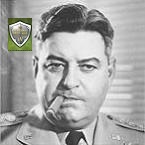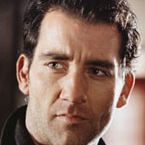Curtis Lemay
Posts: 12969
Joined: 9/17/2004
From: Houston, TX
Status: offline

|
quote:
ORIGINAL: RangerJoe
quote:
ORIGINAL: Curtis Lemay
quote:
ORIGINAL: RangerJoe
How is the Luftwaffe supposed to get more suddenly trained aircrew and ground crew for this anti-shipping strike force? Where is the rubber coming from? The Soviet Union who got it from Malaya? Where are the airfields? Are there enough in that part of France? If not, don't you think that the Spanish would find out about the construction of new ones and act accordingly?
Are you seriously saying that Germany will not be able to produce any more aircraft for the duration of the war? Think of the savings from not having a BoB. Germany was making artificial rubber via coal. There are airfields in France. Close enough to support the initial invasion. From that point, fields could be captured or built.
The production was limited and difficult to expand due to costs and the lack of materials such as building steel. It was also more expensive than natural rubber. Where were those airfields located and what was their condition? Grass or concrete. Savings from the Battle of Britain? What would the RAF be doing, playing bridge?
The Spanish would expect some German troops in the area. Impossible to discern their magnitude or intent. Remember the 1st Airborne was dropped on top of the II SS Panzer Corps later.
But how many, where, and what type of units? That much armour would send up red flags. It is possible to determine magnitude or intent based on what the units are doing and what equipment they have. Obviously you have had no training in that regard. What does the operations Market and Garden have to do with this? Remember that the anti-Fascists were working with the French resistance.
quote:
Any bridges would then have explosives ready to be emplaced and used on the main roads to best effect as well as for the bridges. No panzers can easily move through big road craters in roads, Not to mention a sudden fall of big rocks when moving through any narrow passages and the engineers would have a hard time repairing bridges or building new ones while under fire. To move the enemy away, infantry would have to move across any river/stream which, if it rains in the mountains, can easily and quickly reach the dangerous flood stage. That is not to mention that if there are any dams that their water could be released on demand - carrying logs other debris with the water to injure/kill any enemy soldiers. Flash floods carrying debris with it are not fun.
The terrain in the corridor looks like hills. Mountains are to the east of it. Regardless, this is standard warfare. Bridges are blown and repaired. Nevertheless, strategic surprise will lessen that.
So it is standard warfare and there is no guarantee of strategic surprise. How easy is it to repair a bridge when the troops are being killed and wounded? I don't think that it would be very easy but first, troops have to reach the other side and secure it. all that takes time away and it is not longer a fast advance.
Furthermore, Vichy was negotiated without intent to invade Spain. If that was the plan, a larger corridor could have been bargained for in exchange for terrain somewhere else.
No corridor was bargained for, it was to the extent of the German advance and they had to rush to get that far. The Germans did not want any Vichy territory on the Atlantic coast.
Furthermore, SPI's War in Europe has a Spanish army of 9, not very powerful, divisions. Only one in the corridor area. As I've said, the professionals are on my side.
Who gives a rat's posterior about SPI's War in Europe? You don't need much power in that type of terrain, units can be relocated, the locals would be coming out after the Germans as well. Don't you think that the veteran guerillas would be helping Franco, even if they fought against him?
quote:
In the meantime, the RAF and the RN are not sitting around. Even DDs coming in to bombard along the coast could be a problem. Those ships are fast and hard to hit. Add in some cruisers for even more damage. Some Commandos or their forerunners could come in quick and start doing damage to roads, railroads, and bridges in SW France hindering the movement of units,and supplies.
A fantasy. They would not risk their fleet or their aircraft to save Spain with an invasion staring at them. And the area is going to be far too dense with troops to allow commandos.
Your fantasy to think that the British and Commonwealth would not since they would see the target would be The Rock. It would not be that great a risk. It was more of a risk to help the Greeks which they did later at the expense of the North Afrikan campaign and more of a risk to help Norway.
quote:
During this time, some of the looted gold was sold by Germany through Spain. I recall reading that it was at least 50 tons. How does Germany now sell that to purchase necessary materials in the world markets?
Gold is fungible. The Swiss?
They were using the Swiss as well but the Swiss would/could only do so much. Spain was where a lot of resources came in from South America enroute to Germany.
Even hills have defensive benefits, it is hard to see around them or behind them, attacking uphill against a determined enemy is difficult. Panzers? Any anti-armour fire would be directed more at the top than the front. There is a lot of armour up there, especially on half tracks. The defender gets to see where the enemy is coming from and gets the pleasure of calling artillery and mortar fire on the enemy. And who does the enemy shoot at?
A local shepherd on a hill firing on a German column, an army sniper firing on a German column, or is it an infantry unit up there? Stop the column, dismount infantry, and find out. That takes time. The enemy might be gone by then, artillery/mortar fire might start raining down on the column, men are killed and wounded while vehicles are being destroyed. The burning vehicles are in the way, some of them have ammunition and/or explosives, would you try to move them without an armoured vehicle or an armoured bulldozer? How about your armoured vehicle that is moving a burning vehicle gets enveloped wen the fuel cell explodes? Or the extra fuel that it is carrying explodes?
A steeper slope or a cliff might have people with gasoline bombs to drop on the enemy. A ravine might have bundles of brush with pitch and oil ready to be lit to be dropped in front of, in the middle of, and behind a German column. Do you want to be in a halftrack, a SiG, or an open topped armoured car with one of those landing on top of it? Also, be careful of any cow pies on the road, they might hide a land mine.
Your Germany invasion would also be attacking in the fall when it tends to rain more and there is less daylight. Attacking at night is more difficult. The locals would know the terrain and have knives. Even behind the lines in the rear areas you would not be safe unless you kill ALL of the locals. Culverts could be easily blown making a road impassible. You would have a lot of work crews repairing roads. It is easy to drive fast during road construction when there are big holes running across the road, is it not? The work crews would still be working when they are shot and killed or wounded, correct?
Let me see if I've got this straight:
Between 1939 and 1941, the Germans absolutely roll everyone they meet on the continent of Europe: Poland, Denmark, Norway, The Netherlands, Belgium, France, The BEF, Yugoslavia, Greece, AND!!! the Soviet Union. But, somehow, puny little Spain is the rock they will dash themselves on.
_____________________________
|
 Printable Version
Printable Version

















 New Messages
New Messages No New Messages
No New Messages Hot Topic w/ New Messages
Hot Topic w/ New Messages Hot Topic w/o New Messages
Hot Topic w/o New Messages Locked w/ New Messages
Locked w/ New Messages Locked w/o New Messages
Locked w/o New Messages Post New Thread
Post New Thread